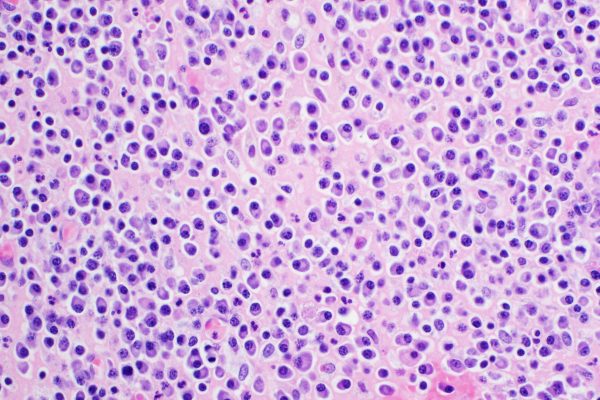
The FDA has approved ciltacabtagene autoleucel (cilta-cel), a chimeric antigen receptor T-cell (CAR-T) therapy to treat patients with relapsed and/or multiple refractory myelomas (RRMM) following four or more prior lines of treatment, including a proteasome inhibitor, an immunomodulatory agent, and an anti-CD38 monoclonal antibody.
The approval of cilta-cel was based on the results of the CARTITUDE-1 study.
The single-arm, open-label, phase 1b/2 clinical trial enrolled 113 patients (at least 18 years of age and measurable disease) with multiple myeloma. Fourteen of the enrolled patients did not receive cilta-cel due to various reasons. The remaining 97 patients received cilta-cel in either phase 1b (29) or phase 2 (68). The majority of enrolled patients were male (59%) and of white ethnicity. The study’s primary endpoint of phase 1b and phase 2 was to examine adverse events (AEs) and Overall response rate (ORR), respectively.
The median age of patients was 61.0 years (IQR, 56.0-68.0), and 59% of patients were male. Moreover, most patients were White and non-Hispanic or non-Latino. Additionally, 24% of patients had a high-risk cytogenetic profile based on the presence of del(17p), t(14;16), or t(4;14), and 13% had extramedullary plasmacytomas at screening.
Patients (n=97) treated with cilta-cel showed a very high overall response rate of 97% ((95% CI, 91.2%-99.4%). Further, the first response was seen in one month (IQR, 0.9-1.0) with a stringent complete response (sCR) rate of 67%. The response to cilta-cel was observed to deepen over time. The median duration of response (DOR) at a median follow-up of 12.4 months (IQR, 10.6-15.2) and median progression-free survival (PFS) with cilta-cel was not yet reached (95% CI, 16.8–not estimable).
Finally, the one year PFS and the overall survival (OS) rate was 77% (95% CI, 66.0%-84.3%) and 89% (95% CI, 80.2%-93.5%), respectively.
Treatment-related toxicities (grade 3 or 4) were observed in all the patients; neutropenia (95%), anaemia (68%), leukopenia (61%), thrombocytopenia (60%), and lymphopenia (50%). Also, patients who experienced grade 3 or 4 cytopenic events after cilta-cel recovered to grade 2 or less by day 30 for lymphopenia (88%), neutropenia (70%), and thrombocytopenia (59%).
Based on the durable response observed over time in the CARTITUDE-1 study, FDA has approved cilta-cel.
Reference